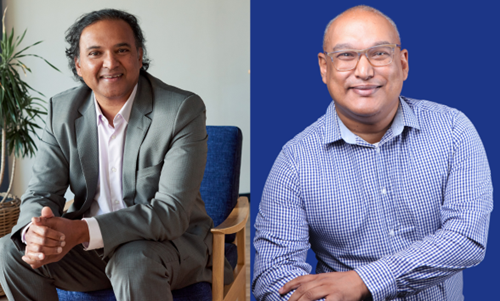10 August 2023

Written by Segran Nair: Director | Milpark Business School and Stanton Lesch: Senior Lecturer
If you’re in business, no matter in what capacity, and looking to keep some footing in the future, consider this: by the year 2050, the five biggest economies in the world are going to be China, the United States, India, Indonesia and Germany. Three of those – China, India, Indonesia – are emerging market economies.
To successfully navigate this shift, it’s crucial to get to grips with the new world order of economies gaining dominance. And the better you understand their complexities, the better you’ll be at ensuring your own long-term growth.
Constant change can seem like a threat, but with the right toolbox, threat can start to look like opportunity.
Innovative outsiders
Silicon Valley gets a lot of press for accelerating tech, but the tech hubs in the so-called frontier regions of emerging economies are becoming a critical mass. Business leaders are recognising the unique innovation offering these outsiders bring to the table, like technology designed to meet basic needs and greater longevity thanks to their lean start-up business models.
Hyderabad, the capital city of India’s southern state of Andhra Pradesh is one such place. Not only is it among India’s top 10 cities, it’s an established hub for IT and an emerging leader in the biomedical industry. Tech giants like Google and Microsoft have built offices in the modern district known as ‘Cyberabad’, capitalising on the glut of skills and innovation in the region.
And equally steeped in more than 400 years of history, it has also become a destination for travellers seeking to contrast the hurtling present with the exalted past of palaces and iconic monuments.
Innovating education
The tech boom in Hyderabad has also led to a surge in higher education and international collaboration between institutions seeking to plug into the heart of skill and adaptation. South Africa-based Milpark Business School is collaborating with Woxsen University, offering students the chance to immerse themselves in the cultural, social, political and economic nuances of this fast-growing innovation hot-spot.
“This is a critical opportunity to exchange learning and forge partnerships between two countries that possess huge talent and opportunity, and are already reinventing business and tech to suit their unique contexts,” says Segran Nair, Director of Milpark Business School. Nair describes how students will not only learn from Woxsen faculty in the classroom, but be plugged in with local business leaders and entrepreneurs. “We’ll be going on-site, to actual, thriving businesses that operate within an incredible emerging force, gathering information that will benefit our businesses back home while also fostering international relationships,” says Nair.
Stanton Lesch, Senior Lecturer at Milpark Business School adds, “We have an emerging market in our own back yard. Partnering with other key markets – and BRICS countries in particular – gives us an idea of how our economy is going to develop. Seeing the trends at play ourselves is the only way we’re going to replicate and improve policy and practice here.”
As digitisation shrinks the world as we know it and turns it into a complex global village, these sorts of partnerships also foster an essential skill for the new world: communication. They teach us how to understand diverse perspectives and engage with one another across cultures. These are not just economic superpowers – they’re human ones.